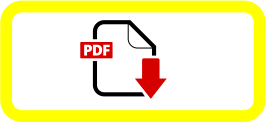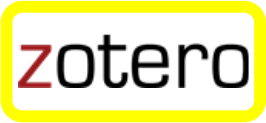The Journal of Constitunional Law Siyasah provides a means for ongoing discussion of relevant issues that fall within the focus and scope of the journal, which can be examined empirically. The journal publishes research articles covering aspects of Islamic Constitutional Law, constitutional Law, Politics of Law and Islamic Law. The breadth of coverage of the Islamic Family Law context published by this journal not only covers local and regional dimensions but includes national to international dimensions.
POLICIES
ARTICLES
Checked Open Submissions Checked Indexed Checked Peer Reviewed
EDITORIAL
Checked Open Submissions Checked Indexed Checked Peer Reviewed
BOOK REVIEW
Checked Open Submissions Checked Indexed Unchecked Peer Reviewed
Peer Review Process
After submit inventions have made a preliminary review of the manuscript by the editor SIYASAH HUKUM TATA NEGARA. Editor will decide whether the manuscript in accordance with the scope and focus and proper to give to the reviewer. Sometimes, editors may recommend revision before submitting for review. This initial review of activities usually takes a week.
Submissions that pass the initial review will be assigned to at least two reviewers (double-blind peer review). Before the articles review by reviewers, i'ts will be screened on Plagiarism Checker, and Based on the review and paliarism checker, editor will first make editorial decisions. There are five possible editorial decisions (1) the manuscript is accepted, (2) be amended, (3) re-submit, (4) is sent to another publisher, or (5) is rejected.
Typically, the time frame of delivery to the first editor of the average results of 6-8 weeks.
The time to reach a final decision depends on the number of reviews rotation, perceptive writer etc. Typically, the time frame of delivery by an average of 3-4 months a final decision.
The total turnaround time for publishing a manuscript depends (additionally to the factors mentioned above) on the submission date, the journal's publication schedule, authors' adherence to the publication guidelines etc. Reviewed and accepted submissions are published with SIYASAH HUKUM TATA NEGARA after 3-4 months on average.
Open Access Policy
This journal provides immediate open access to its content on the principle that making research freely available to the public supports a greater global exchange of knowledge.
Publication Ethics
Publication Ethics of SIYASAH HUKUM TATA NEGARA
This statement clarifies ethical behaviour of all parties involved in the act of publishing an article in our journals, including the authors, the editors, the peer-reviewers and the publisher Sharia Faculty Of IAIN Metro. This statement is based on COPE’s Best Practice Guidelines for Journal Editors.
Ethical Guideline for Journal Publication
The publication of an article in a peer-reviewed GUIDENA Journal is an essential building block in the development of a coherent and respected network of knowledge. It is a direct reflection of the quality of the work of the authors and the institutions that support them. Peer-reviewed articles support and embody the scientific method. It is therefore important to agree upon standards of expected ethical behavior for all parties involved in the act of publishing: the authors, the journal editors, the peer reviewers, the publisher and the society.
Institut Agama Islam Negeri (IAIN) Metro and Department of Guidance and Counseling as publisher of this Journal takes its duties of guardianship over all stages of publishing extremely seriously and we recognize our ethical and other responsibilities. We are committed to ensuring that advertising, reprint or other commercial revenue has no impact or influence on editorial decisions. In addition, the IAIN Metro and Editorial Board will assist in communications with other journals and/or publishers where this is useful and necessary.
Publication decisions
The editors of the SIYASAH HUKUM TATA NEGARA Journal are responsible for deciding which of the articles submitted to the journal should be published. The validation of the work in question and its importance to researchers and readers must always drive such decisions. The editors may be guided by the policies of the journal's editorial board and constrained by such legal requirements as shall then be in force regarding libel, copyright infringement and plagiarism. The editors may confer with other editors or reviewers in making this decision.
Fair play
An editor at any time evaluate manuscripts for their intellectual content without regard to race, gender, sexual orientation, religious belief, ethnic origin, citizenship, or political philosophy of the authors.
Confidentiality
The editor and any editorial staff must not disclose any information about a submitted manuscript to anyone other than the corresponding author, reviewers, potential reviewers, other editorial advisers, and the publisher, as appropriate.
Disclosure and conflicts of interest
Unpublished materials disclosed in a submitted manuscript must not be used in an editor's own research without the express written consent of the author.
Duties of Reviewers
Contribution to Editorial Decisions
Peer review assists the editor in making editorial decisions and through the editorial communications with the author may also assist the author in improving the paper.
Promptness
Any selected referee who feels unqualified to review the research reported in a manuscript or knows that its prompt review will be impossible should notify the editor and excuse himself from the review process.
Confidentiality
Any manuscripts received for review must be treated as confidential documents. They must not be shown to or discussed with others except as authorized by the editor.
Standards of Objectivity
Reviews should be conducted objectively. Personal criticism of the author is inappropriate. Referees should express their views clearly with supporting arguments.
Acknowledgement of Sources
Reviewers should identify relevant published work that has not been cited by the authors. Any statement that an observation, derivation, or argument had been previously reported should be accompanied by the relevant citation. A reviewer should also call to the editor's attention any substantial similarity or overlap between the manuscript under consideration and any other published paper of which they have personal knowledge.
Disclosure and Conflict of Interest
Privileged information or ideas obtained through peer review must be kept confidential and not used for personal advantage. Reviewers should not consider manuscripts in which they have conflicts of interest resulting from competitive, collaborative, or other relationships or connections with any of the authors, companies, or institutions connected to the papers.
Duties of Authors
Reporting standards
Authors of reports of original research should present an accurate account of the work performed as well as an objective discussion of its significance. Underlying data should be represented accurately in the paper. A paper should contain sufficient detail and references to permit others to replicate the work. Fraudulent or knowingly inaccurate statements constitute unethical behaviour and are unacceptable.
Data Access and Retention
Authors are asked to provide the raw data in connection with a paper for editorial review, and should be prepared to provide public access to such data (consistent with the ALPSP-STM Statement on Data and Databases), if practicable, and should in any event be prepared to retain such data for a reasonable time after publication.
Originality and Plagiarism
The authors should ensure that they have written entirely original works, and if the authors have used the work and/or words of others that this has been appropriately cited or quoted.
Multiple, Redundant or Concurrent Publication
An author should not in general publish manuscripts describing essentially the same research in more than one journal or primary publication. Submitting the same manuscript to more than one journal concurrently constitutes unethical publishing behaviour and is unacceptable.
Acknowledgement of Sources
Proper acknowledgment of the work of others must always be given. Authors should cite publications that have been influential in determining the nature of the reported work.
Authorship of the Paper
Authorship should be limited to those who have made a significant contribution to the conception, design, execution, or interpretation of the reported study. All those who have made significant contributions should be listed as co-authors. Where there are others who have participated in certain substantive aspects of the research project, they should be acknowledged or listed as contributors. The corresponding author should ensure that all appropriate co-authors and no inappropriate co-authors are included on the paper, and that all co-authors have seen and approved the final version of the paper and have agreed to its submission for publication.
Hazards and Human or Animal Subjects
If the work involves chemicals, procedures or equipment that have any unusual hazards inherent in their use, the author must clearly identify these in the manuscript.
Disclosure and Conflicts of Interest
All authors should disclose in their manuscript any financial or other substantive conflict of interest that might be construed to influence the results or interpretation of their manuscript. All sources of financial support for the project should be disclosed.
Fundamental errors in published works
When an author discovers a significant error or inaccuracy in his/her own published work, it is the author’s obligation to promptly notify the journal editor or publisher and cooperate with the editor to retract or correct the paper.
Corrections and Retractions
In certain cases when there is a serious error or suspected violations, SIYASAH HUKUM TATA NEGARA will publish a correction and retraction.
Correction
In the case of serious errors that affect the article by way of material (but not completely cancel the results), or significantly interfere with the reader's understanding or evaluation of the article, SIYASAH HUKUM TATA NEGARA publish corrections records related to the published article. This article is published will be left unchanged.
Retractions
In accordance with the “Retraction Guidelines” by the Committee on Publication Ethics (COPE) SIYASAH HUKUM TATA NEGARA will retract a published article if
there is clear evidence that the findings are unreliable, either as a result of misconduct (e.g. data fabrication) or honest error (e.g. miscalculation),
the findings have previously been published elsewhere without proper crossreferencing, permission or justification (i.e. cases of redundant publication),
it constitutes plagiarism,
it reports unethical research.
If an investigation is underway which may result in the revocation of an article SIYASAH HUKUM TATA NEGARA can choose to remind readers to publish an expression of concern.
Publication Frequency
SIYASAH HUKUM TATA NEGARA: Jurnal Hukum is published twice in a year, January-June Period, and July-December period. Articles can be submitted at any time.
=================================INDONESIA===============================
Proses Penelaahan Sejawat (Peer Review)
Setelah pengirim naskah melakukan penelaahan awal terhadap naskah tersebut oleh editor SIYASAH HUKUM TATA NEGARA. Editor akan memutuskan apakah naskah tersebut sesuai dengan ruang lingkup dan fokus dan layak untuk diberikan kepada reviewer. Terkadang, editor dapat merekomendasikan revisi sebelum mengirimkannya untuk ditinjau. Kegiatan tinjauan awal ini biasanya memakan waktu satu minggu.
Naskah yang lolos tinjauan awal akan ditugaskan kepada setidaknya dua orang reviewer (double-blind peer review). Sebelum artikel ditinjau oleh pengulas, artikel akan disaring di Pemeriksa Plagiarisme, dan Berdasarkan tinjauan dan pemeriksa plagiarisme, editor pertama-tama akan membuat keputusan editorial. Ada lima kemungkinan keputusan editorial (1) naskah diterima, (2) diperbaiki, (3) dikirim ulang, (4) dikirim ke penerbit lain, atau (5) ditolak.
Biasanya, jangka waktu pengiriman ke editor pertama dari hasil rata-rata 6-8 minggu. Waktu untuk mencapai keputusan akhir tergantung pada jumlah rotasi penelaahan, penulis yang tanggap, dll. Biasanya, jangka waktu pengiriman rata-rata 3-4 bulan keputusan akhir.
Total waktu penyelesaian untuk menerbitkan naskah tergantung (selain faktor-faktor yang disebutkan di atas) pada tanggal penyerahan, jadwal publikasi jurnal, kepatuhan penulis terhadap pedoman publikasi, dll. Naskah yang telah ditinjau dan diterima akan diterbitkan di SIYASAH HUKUM TATA NEGARA setelah rata-rata 3-4 bulan.
Kebijakan Akses Terbuka
Jurnal ini menyediakan akses terbuka langsung ke kontennya dengan prinsip bahwa membuat penelitian tersedia secara bebas untuk umum mendukung pertukaran pengetahuan global yang lebih besar.
Etika Publikasi
Etika Publikasi SIYASAH HUKUM TATA NEGARA
Pernyataan ini mengklarifikasi perilaku etis dari semua pihak yang terlibat dalam tindakan penerbitan artikel di jurnal kami, termasuk penulis, editor, mitra bestari, dan penerbit Fakultas Syariah IAIN Metro. Pernyataan ini didasarkan pada Pedoman Praktik Terbaik COPE untuk Editor Jurnal.
Pedoman Etika untuk Publikasi Jurnal
Penerbitan sebuah artikel dalam Jurnal GUIDENA yang telah melalui proses peer-review merupakan blok bangunan penting dalam pengembangan jaringan pengetahuan yang koheren dan dihormati. Hal ini merupakan cerminan langsung dari kualitas karya para penulis dan institusi yang mendukung mereka. Artikel yang diulas oleh rekan sejawat mendukung dan mewujudkan metode ilmiah. Oleh karena itu, penting untuk menyepakati standar perilaku etis yang diharapkan untuk semua pihak yang terlibat dalam tindakan penerbitan: penulis, editor jurnal, mitra bestari, penerbit, dan masyarakat.
Institut Agama Islam Negeri (IAIN) Metro dan Jurusan Bimbingan dan Konseling sebagai penerbit Jurnal ini menjalankan tugas perwalian atas semua tahap penerbitan dengan sangat serius dan kami menyadari tanggung jawab etika dan tanggung jawab lainnya. Kami berkomitmen untuk memastikan bahwa iklan, cetak ulang atau pendapatan komersial lainnya tidak memiliki dampak atau pengaruh pada keputusan editorial. Selain itu, IAIN Metro dan Dewan Redaksi akan membantu dalam komunikasi dengan jurnal dan/atau penerbit lain jika hal ini berguna dan diperlukan.
Keputusan publikasi
Editor Jurnal SIYASAH HUKUM TATA NEGARA bertanggung jawab untuk memutuskan artikel mana yang dikirimkan ke jurnal yang harus diterbitkan. Validasi dari karya yang bersangkutan dan kepentingannya bagi para peneliti dan pembaca harus selalu mendorong keputusan tersebut. Para editor dapat dipandu oleh kebijakan dewan editorial jurnal dan dibatasi oleh persyaratan hukum yang berlaku mengenai pencemaran nama baik, pelanggaran hak cipta dan plagiarisme. Editor dapat berunding dengan editor atau peninjau lain dalam membuat keputusan ini
Permainan yang adil
Editor setiap saat mengevaluasi naskah untuk konten intelektualnya tanpa memperhatikan ras, jenis kelamin, orientasi seksual, keyakinan agama, asal etnis, kewarganegaraan, atau filosofi politik penulis.
Kerahasiaan
Editor dan staf editorial tidak boleh mengungkapkan informasi apa pun tentang naskah yang dikirimkan kepada siapa pun selain penulis yang bersangkutan, pengulas, calon pengulas, penasihat editorial lainnya, dan penerbit, sebagaimana mestinya.
Pengungkapan dan konflik kepentingan
Materi yang tidak dipublikasikan yang diungkapkan dalam naskah yang dikirimkan tidak boleh digunakan dalam penelitian editor sendiri tanpa persetujuan tertulis dari penulis.
Tugas Peninjau
Kontribusi terhadap Keputusan Editorial
Penelaahan sejawat membantu editor dalam membuat keputusan editorial dan melalui komunikasi editorial dengan penulis juga dapat membantu penulis dalam memperbaiki naskah.
Ketepatan Waktu
Setiap wasit terpilih yang merasa tidak memenuhi syarat untuk meninjau penelitian yang dilaporkan dalam naskah atau mengetahui bahwa tinjauan yang cepat tidak mungkin dilakukan harus memberi tahu editor dan memaafkan dirinya sendiri dari proses peninjauan.
Kerahasiaan
Setiap naskah yang diterima untuk ditinjau harus diperlakukan sebagai dokumen rahasia. Naskah tersebut tidak boleh diperlihatkan atau didiskusikan dengan orang lain kecuali jika diizinkan oleh editor.
Standar Objektivitas
Ulasan harus dilakukan secara objektif. Kritik pribadi terhadap penulis tidak pantas dilakukan. Peninjau harus mengungkapkan pandangan mereka secara jelas dengan argumen yang mendukung.
Pengakuan Sumber
Peninjau harus mengidentifikasi karya yang diterbitkan yang relevan yang belum dikutip oleh penulis. Setiap pernyataan bahwa suatu pengamatan, turunan, atau argumen telah dilaporkan sebelumnya harus disertai dengan kutipan yang relevan. Peninjau juga harus meminta perhatian editor untuk mengetahui adanya kesamaan substansial atau tumpang tindih antara naskah yang sedang dipertimbangkan dengan naskah lain yang telah diterbitkan yang mereka ketahui secara pribadi.
Pengungkapan dan Konflik Kepentingan
Informasi atau ide istimewa yang diperoleh melalui penelaahan sejawat harus dijaga kerahasiaannya dan tidak digunakan untuk keuntungan pribadi. Peninjau tidak boleh mempertimbangkan naskah yang memiliki konflik kepentingan yang diakibatkan oleh hubungan kompetitif, kolaboratif, atau hubungan atau koneksi lain dengan penulis, perusahaan, atau institusi yang terkait dengan naskah tersebut.
Tugas Penulis
Standar pelaporan
Penulis laporan penelitian asli harus menyajikan laporan yang akurat tentang pekerjaan yang dilakukan serta diskusi yang obyektif tentang signifikansinya. Data yang mendasari harus direpresentasikan secara akurat dalam makalah. Makalah harus berisi detail dan referensi yang cukup untuk memungkinkan orang lain mereplikasi karya tersebut. Pernyataan yang curang atau tidak akurat secara sengaja merupakan perilaku yang tidak etis dan tidak dapat diterima.
Akses dan Penyimpanan Data
Penulis diminta untuk memberikan data mentah sehubungan dengan makalah untuk tinjauan editorial, dan harus siap untuk menyediakan akses publik ke data tersebut (sesuai dengan Pernyataan ALPSP-STM tentang Data dan Basis Data), jika dapat dilakukan, dan dalam hal apa pun harus siap untuk menyimpan data tersebut untuk waktu yang wajar setelah publikasi.
Orisinalitas dan Plagiarisme
Penulis harus memastikan bahwa mereka telah menulis karya yang sepenuhnya orisinal, dan jika penulis telah menggunakan karya dan/atau kata-kata orang lain, maka hal ini telah dikutip atau dikutip dengan tepat.
Publikasi Berganda, Berlebihan, atau Bersamaan
Seorang penulis tidak boleh mempublikasikan naskah yang pada dasarnya menggambarkan penelitian yang sama di lebih dari satu jurnal atau publikasi primer. Mengirimkan naskah yang sama ke lebih dari satu jurnal secara bersamaan merupakan perilaku penerbitan yang tidak etis dan tidak dapat diterima.
Pernyataan Sumber
Pengakuan yang tepat atas karya orang lain harus selalu diberikan. Penulis harus mengutip publikasi yang berpengaruh dalam menentukan sifat karya yang dilaporkan.
Kepenulisan Makalah
Kepengarangan harus dibatasi pada mereka yang telah memberikan kontribusi yang signifikan terhadap konsepsi, desain, pelaksanaan, atau interpretasi studi yang dilaporkan. Semua orang yang telah memberikan kontribusi yang signifikan harus dicantumkan sebagai penulis pendamping. Jika ada orang lain yang telah berpartisipasi dalam aspek substantif tertentu dari proyek penelitian, mereka harus diakui atau dicantumkan sebagai kontributor. Penulis yang bersangkutan harus memastikan bahwa semua penulis pendamping yang sesuai dan tidak ada penulis pendamping yang tidak sesuai disertakan dalam naskah, dan bahwa semua penulis pendamping telah melihat dan menyetujui versi akhir naskah serta menyetujui penyerahan naskah untuk dipublikasikan.
Pembahasan Bahaya dan Subjek Manusia atau Hewan
Jika pekerjaan melibatkan bahan kimia, prosedur atau peralatan yang memiliki bahaya yang tidak biasa yang melekat dalam penggunaannya, penulis harus mengidentifikasi dengan jelas dalam naskah.
Pernyataan dan Konflik Kepentingan
Semua penulis harus mengungkapkan dalam naskah mereka setiap konflik kepentingan keuangan atau konflik kepentingan substantif lainnya yang mungkin ditafsirkan untuk mempengaruhi hasil atau interpretasi naskah mereka. Semua sumber dukungan keuangan untuk proyek ini harus diungkapkan.
Kesalahan mendasar dalam karya yang diterbitkan
Ketika seorang penulis menemukan kesalahan atau ketidaktepatan yang signifikan dalam karya yang diterbitkannya sendiri, penulis berkewajiban untuk segera memberi tahu editor jurnal atau penerbit dan bekerja sama dengan editor untuk menarik kembali atau memperbaiki naskah tersebut.
Koreksi dan Pencabutan
Dalam kasus-kasus tertentu ketika ada kesalahan serius atau dugaan pelanggaran, SIYASAH HUKUM TATA NEGARA akan mempublikasikan koreksi dan pencabutan.
Koreksi
Dalam kasus kesalahan serius yang mempengaruhi artikel secara materi (tetapi tidak sepenuhnya membatalkan hasil), atau secara signifikan mengganggu pemahaman atau evaluasi pembaca terhadap artikel, SIYASAH HUKUM TATA NEGARA akan mempublikasikan catatan ralat yang terkait dengan artikel yang dipublikasikan. Artikel yang telah diterbitkan tidak akan diubah.
Pencabutan
Sesuai dengan "Pedoman Pencabutan" oleh Komite Etika Publikasi (COPE) SIYASAH HUKUM TATA NEGARA akan menarik kembali artikel yang telah diterbitkan jika terdapat bukti yang jelas bahwa temuan tersebut tidak dapat diandalkan, baik sebagai akibat dari kesalahan (misalnya pemalsuan data) atau kesalahan yang disengaja (misalnya kesalahan perhitungan), temuan tersebut sebelumnya telah dipublikasikan di tempat lain tanpa referensi silang, izin, atau pembenaran yang tepat (misalnya kasus publikasi yang berlebihan), itu merupakan plagiarisme, melaporkan penelitian yang tidak etis. Jika investigasi sedang berlangsung yang dapat mengakibatkan pencabutan sebuah artikel, SIYASAH HUKUM TATA NEGARA dapat memilih untuk mengingatkan pembaca untuk mempublikasikan ekspresi keprihatinan.
Frekuensi Publikasi
SIYASAH HUKUM TATA NEGARA: Jurnal Hukum terbit dua kali dalam setahun, yaitu pada periode Januari-Juni dan Juli-Desember. Naskah dapat dikirimkan kapan saja.











